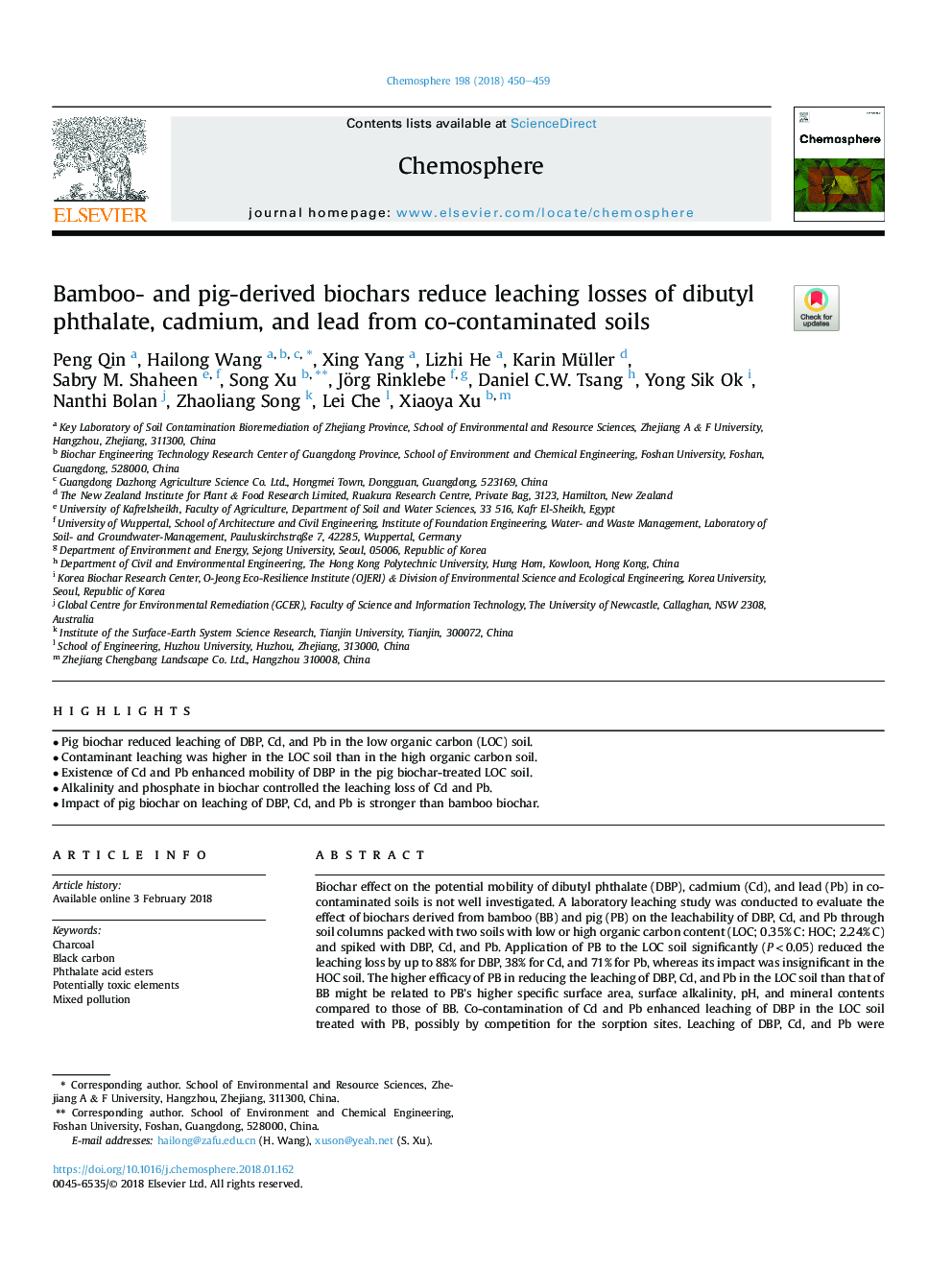| Article ID | Journal | Published Year | Pages | File Type |
|---|---|---|---|---|
| 8851949 | Chemosphere | 2018 | 10 Pages |
Abstract
Biochar effect on the potential mobility of dibutyl phthalate (DBP), cadmium (Cd), and lead (Pb) in co-contaminated soils is not well investigated. A laboratory leaching study was conducted to evaluate the effect of biochars derived from bamboo (BB) and pig (PB) on the leachability of DBP, Cd, and Pb through soil columns packed with two soils with low or high organic carbon content (LOC; 0.35% C: HOC; 2.24% C) and spiked with DBP, Cd, and Pb. Application of PB to the LOC soil significantly (Pâ¯<â¯0.05) reduced the leaching loss by up to 88% for DBP, 38% for Cd, and 71% for Pb, whereas its impact was insignificant in the HOC soil. The higher efficacy of PB in reducing the leaching of DBP, Cd, and Pb in the LOC soil than that of BB might be related to PB's higher specific surface area, surface alkalinity, pH, and mineral contents compared to those of BB. Co-contamination of Cd and Pb enhanced leaching of DBP in the LOC soil treated with PB, possibly by competition for the sorption sites. Leaching of DBP, Cd, and Pb were significantly (Pâ¯<â¯0.05) higher in the LOC soil than in the HOC soil. This study revealed that the effectiveness of biochars was dependent on the soil organic carbon content. Application of PB to the LOC soil was effective in reducing the leaching risk of DBP, Cd, and Pb.
Related Topics
Life Sciences
Environmental Science
Environmental Chemistry
Authors
Peng Qin, Hailong Wang, Xing Yang, Lizhi He, Karin Müller, Sabry M. Shaheen, Song Xu, Jörg Rinklebe, Daniel C.W. Tsang, Yong Sik Ok, Nanthi Bolan, Zhaoliang Song, Lei Che, Xiaoya Xu,
